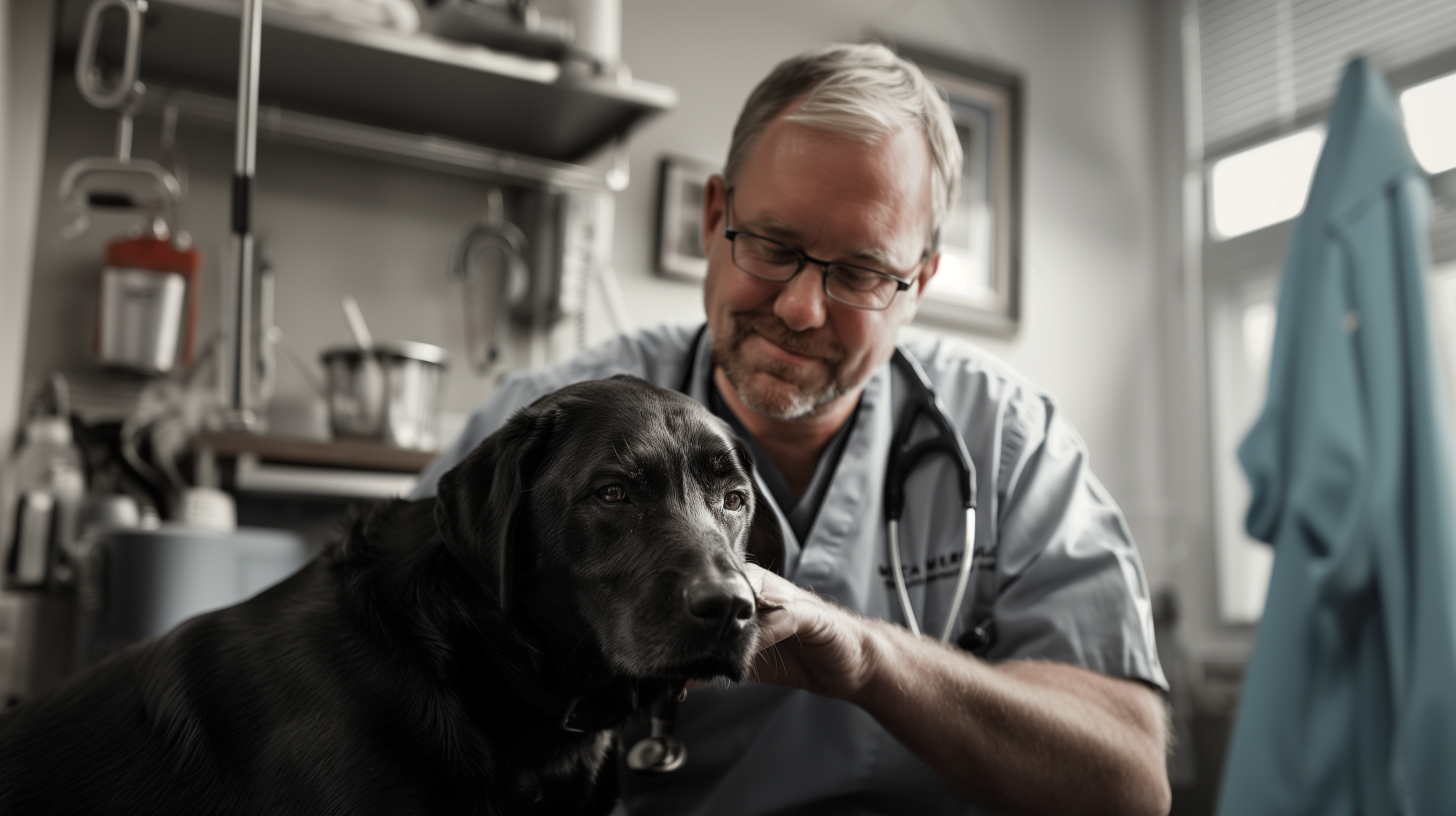One topic I get asked about frequently is screening blood work. I’ll use screening bloodwork in this post to include both pre-surgical blood work and senior blood work. There were two general themes to the questions, those wanting to know if it was worthwhile and the second group wondering at what age it should be started.
I am a big believer in preventative medicine, and while I enjoy challenging cases it is so much better to maintain health rather than to try to fix a problem once the wheels come off. The most important preventative measures will always be feeding a high-quality food, keeping your dog in good body condition and keeping them fit and active. Nearly as important will be monitoring their healthy state. This monitoring includes a thorough exam, once or twice, a year, a yearly fecal exam, heartworm and tick-borne disease testing and screening blood work.
I intentionally used the word “thorough” before exam. This isn’t the place to skimp and go to the cheapest vaccine clinic you can find. While vaccines are important in disease prevention what you should be paying for is your veterinarian’s expertise and skill. So often we find issues on our exams that owners were not yet aware were a concern. This can include things like a heart murmur, a swelling in a joint or even cancer. There are a lot of tools and toys that can be used by medical professionals but at the end of the day the best tool we have will always be our ability to perform a thorough, and complete, physical exam.
Screening blood work allows us to complete the picture of our exam by allowing us to assess the things we can readily quantify with our physical exam. The results allow us to examine the blood system, the liver, the kidneys and many endocrine organs. It is a very crucial piece of the puzzle to either declare a dog is indeed healthy or that there is an issue. Note that I said it is a piece of the puzzle. One little cheat I’ll give you when evaluating your veterinarian is how they go about recommending blood work, whether it be screening or diagnostic. The way I like to see it presented is that we need to do blood work to confirm or rule out XYZ, with XYZ being the disease or concerns your veterinarian has. This would indicate to me that your veterinarian has assessed the situation and has a game plan to find an answer. Where I get nervous is when a veterinarian proposes doing diagnostics so that “we can find an answer.” This would indicate that maybe they don’t have a clue and they are hoping the answer reveals itself with the diagnostics. It may seem like a subtle difference but very often can be an indicator to your vet’s confidence and ability to find the answer to the problem.
Full disclosure, there are times I’m wrong. Many times in fact. Based on my exam findings and the symptoms I’ll have my list of possibilities only to have the blood work either prove me wrong or take me in another direction. This being the main reason we still need to do the diagnostics rather than to be able to just go with our gut feeling. It is important to develop a plan and then put the pieces together. The diagnostics should be used as a tool along the path to a diagnosis and not as the sole guide.
Specifically to screening blood work what we are hoping to confirm is a healthy state. Whether it is prior to surgery or with a senior dog the reason we are performing it is because we suspect that the dog is healthy and we are hoping to confirm that with our diagnostics.
When we look at pre-anesthetic blood work or presurgical bloodwork most clinics do not even make this an option anymore and it is just standard. Even after doing this nearly a quarter century I still will be regularly surprised by a patient with abnormal presurgical bloodwork when I wasn’t expecting it. There are times that this has revealed an even bigger underlying issue that results in canceling the surgical procedure and focusing on this newly found abnormality. In other cases it is just an abnormal blip on the radar that will return to normal with time. The ultimate goal with presurgical bloodwork is to ensure safe anesthesia, safe procedure and an uneventful recovery.
Senior blood work is done for similar reason, we are hoping to confirm a healthy status. In this case though instead of trying to avoid anesthesia complications we are hoping that if something is unexpectedly abnormal we can make changes that can either reverse the abnormalities or institute changes to prolong a healthy life.
Years ago we used to call dogs seniors at seven years of age. Now I think we know that this may be a bit of a moving target and putting a number on when a dog is a senior is tough and based on a number of factors including breed, size, genetics, etc. For this reason there has been a shift to having the discussion about annual blood work when a dog is around five years old. This has become my typical starting point for regular annual blood work. Typically by five years of age we have had some blood work done prior, whether it has been due to a surgical procedure or the dog getting sick. This will also factor into my recommendations of when to start. Sooner if we have never taken a look and maybe further out if we’ve had a couple of data points that show no concern.
As a general rule, in that 5-7 years range, is when I will start performing annual blood work to get a big picture view of the internal organs and whether there are any changes that occur year-to-year. At a later time, usually ten or after I’ll switch to doing blood work twice yearly. In a dog that has had chronic health issues, I’ll likely start at ten. With a dog that has been the picture of health and is still athletic and active I’ll push it down the road until there is a need.
I take a cradle-to-grave approach with my veterinary practice and most everything I do is centered around optimizing health to put the odds in our favor of having a healthy, happy dog with a long athletic career. Doing screening blood work is one of the tools that I see as vital in helping achieve that goal.



